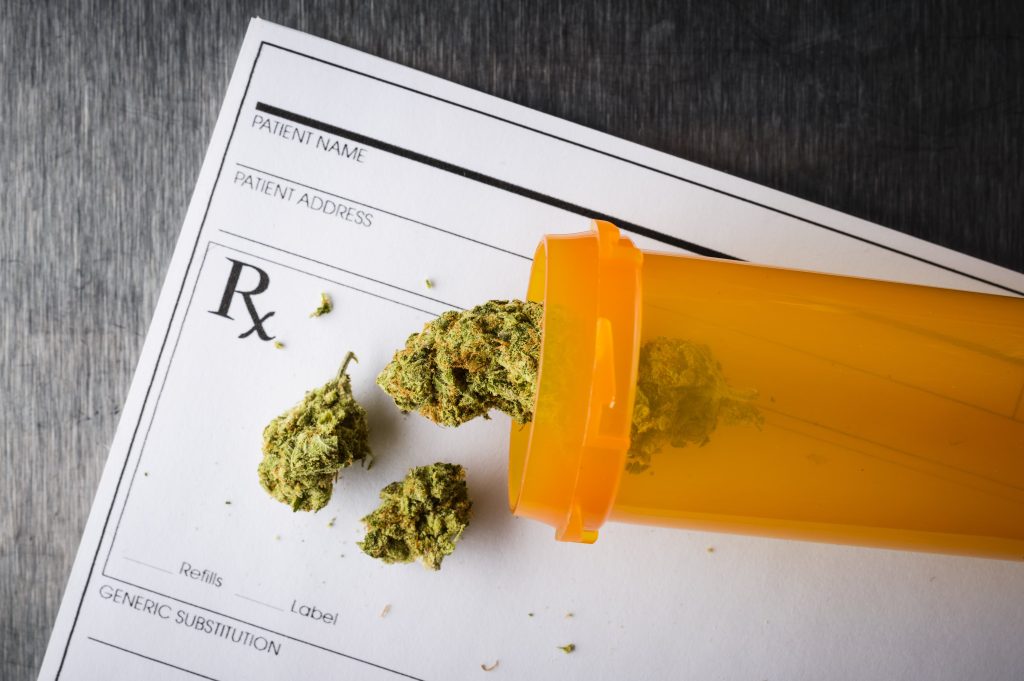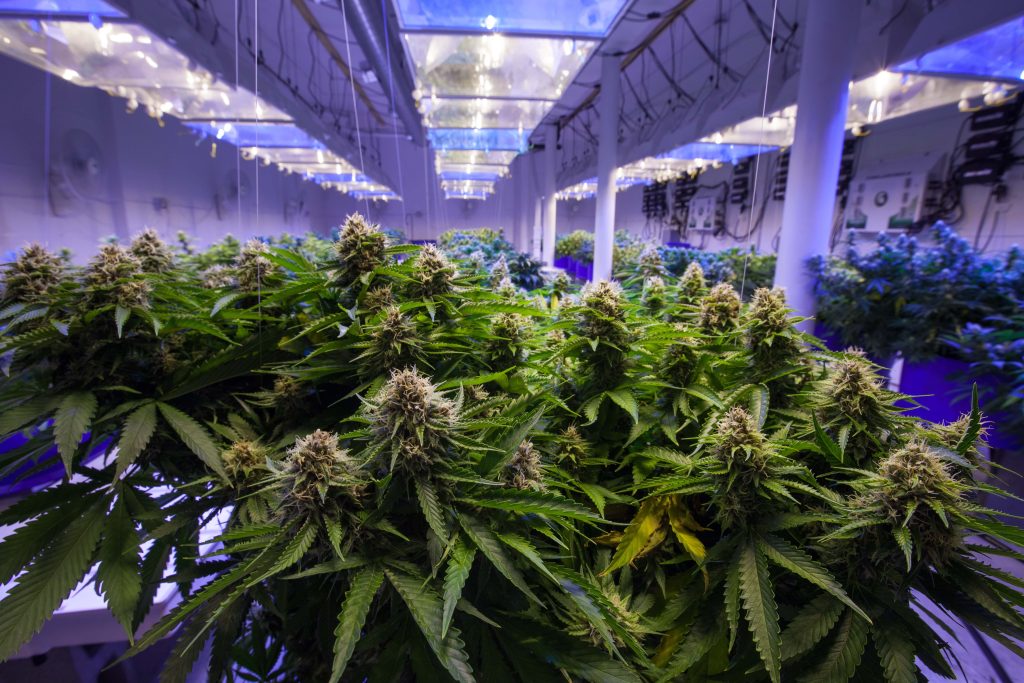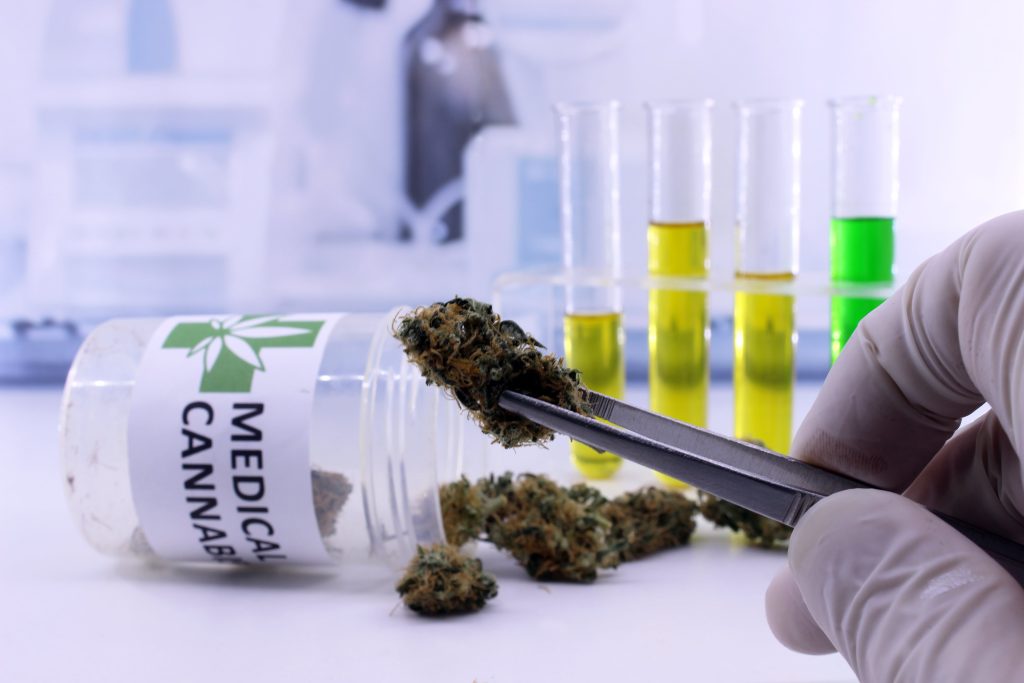
More and more states are legalizing the use of medical marijuana — and Illinois is now one of them!
If you live in Illinois and want to learn more about accessing medical marijuana, you’ve come to the right place.
Medical marijuana laws can be confusing — whether you’re a patient or a physician. Read our guide to improve your knowledge of Illinois’ medical marijuana rules and regulations.
In order to obtain medical marijuana in Illinois, you’ll need to apply for a medical marijuana card. The registration process is easy but involves a few steps.
Below is an overview of what you’ll need to do to apply for a card.
The first step is to find an Illinois physician who is licensed to certify patients for medical marijuana use.
Assuming that you have a qualifying condition, a licensed doctor can provide you with the necessary certificate that Illinois requires to dispense medical marijuana cards. The doctor must be either a Medical Doctor (M.D.) or a Doctor of Osteopathic Medicine (D.O.).
If you have a debilitating medical condition that qualifies you to obtain a medical marijuana card, you will need to see a doctor who can treat you for that condition. Illinois has several medical marijuana physicians with whom you can work to determine if medical cannabis is right for you.
According to Illinois’ Compassionate Use of Medical Cannabis Pilot Program Act, several debilitating medical conditions qualify for medical marijuana.
Click here to see the full list of debilitating conditions that qualify.
Once your doctor reviews your medical records and medical history, as well as confirms that you have a qualifying condition, they can provide you a certificate for medical marijuana.
The next step is to complete the patient application form through the Illinois medical cannabis program.
The medical marijuana patient application process is simple. First, visit the Illinois Department of Public Health website to access the application form.
The website contains helpful resources, instructions, and FAQs to help you complete the form.
In addition to a doctor’s certificate, your application must include proof of residency in Illinois, a headshot photo, and the registration fee.
The application fees for obtaining a medical cannabis card in Illinois are:
Patients who are battling terminal illness are not required to pay a fee.
For others, Illinois may reduce or provide a waiver for the fee under special circumstances. Special circumstances include veteran status, receiving social security disability income, and supplemental security income.
Note that you must be an Illinois resident to apply. Make sure that you have your identification card when applying.
Patients in Illinois must meet certain medical qualifications to register a medical marijuana card. Here are some of the qualifications you must meet in order to register.
You must be 18 years of age or older to qualify for medical marijuana In Illinois.
Those who are under 18 can obtain a medical marijuana card if their designated caregiver signs off. Designated caregivers of minors will also need to register a caregiver application for a medical marijuana card so that they will not face consequences for possessing cannabis.
Medical marijuana can provide relief for a number of medical conditions, but only some of those conditions qualify under Illinois law.
Qualifying conditions include, but are not limited to:
Check with the Illinois Department of Public Health to learn about other conditions that may qualify.
Likewise, your physician may know if you have a condition that qualifies you for a medical marijuana card. Talk to your physician to learn if it’s possible for you to become a medical cannabis patient.
Certain factors can exclude an individual from successfully applying for a medical cannabis card in Illinois.
If you are an active duty member of law enforcement or a firefighter, you will not be able to obtain a medical marijuana card. The same exclusion applies if you hold a school bus permit or a commercial driver’s license.
Check Out: Can I Use Marijuana Instead of Antidepressants?

Illinois has offered medical marijuana to qualifying, registered patients for a number of years.
If you are seeking a medical marijuana card in Illinois, it’s important to know your rights and how they’ve evolved — or may evolve — over time.
The state of Illinois passed the Compassionate Use of Medical Cannabis Pilot Program in 2013.
More than 100,000 people in Illinois have since been able to access medical marijuana for the treatment of various medical conditions. In 2020, the state also legalized recreational marijuana use for adults who are 21 years of age or older.
It’s important to remember that marijuana, whether medicinal or recreational, is still not legal under federal law.
Illinois law distinguishes different limits on how much marijuana you can possess. Those limits depend on whether the individual is using marijuana for medicinal purposes or recreational purposes.
Patients who have a medical marijuana registry card may possess up to 2.5 ounces of medical cannabis every two weeks. The limits on medical marijuana possession are much higher than the limits on recreational possession.
Medical cannabis card holders are also subject to a lower tax rate (1%) when obtaining marijuana from a dispensary.
By contrast, recreational adult cannabis users can expect to pay anywhere from 6.25% in tax, up to a maximum of 34.75%. The difference in tax rates will depend on the THC content level for each product purchased.
Illinois residents can only buy medical marijuana from a licensed medical cannabis dispensary. They can also possess and cultivate up to 5 marijuana plants at home for personal use.
In order to grow cannabis at a private residence, you must be 21 years of age and have an Illinois medical marijuana card.
Although medical marijuana has been legal in Illinois for ten years, recreational use was only legalized in 2020.
Recreational cannabis laws in Illinois are often more strict than those in other states. Recreational use is also subject to a higher tax rate.
Medical marijuana card holders in Illinois can possess up to 2.5 ounces of cannabis every two weeks.
In comparison, recreational users may only possess up to 1 ounce of marijuana. There is a limit of 500mg THC for cannabis-infused edibles and similar products.
If someone wants to purchase a very concentrated form of cannabis, such as a tincture, there is a possession limit of no more than five grams at a time. Non-residents of Illinois may only possess half of the above limits at a time.
Recreational marijuana users must be 21 or older and cannot grow or possess marijuana plants, the latter of which is limited to medical marijuana card holders only.
Marijuana must be locked and stored out of sight from anyone under the age of 21.
At this time, recreational marijuana can only be used at Illinois private residences.
Public use of recreational cannabis is illegal throughout the entire state of Illinois. That means no smoking in parks, streets, or other public areas.
Because cannabis is still illegal under federal law, you cannot possess or use marijuana on federal property. For example, if you’re taking a flight out of a Chicago airport, it’s still against federal law to possess or use marijuana on airport property.
Each individual cannabis dispensary in Illinois has the discretion to allow, or not allow, public consumption of marijuana on the premises.
Again, because marijuana is still illegal under federal law, you cannot purchase cannabis in Illinois and then move it over state lines.
Recreational and medical marijuana users are subject to different tax laws on cannabis products. Medical marijuana users are only required to pay a 1% tax on cannabis purchases. The taxes for recreational marijuana products are based on the amount of THC present in an individual cannabis product.
The wholesale tax for recreational cannabis is 7%. At the retail level, the following taxes apply to consumers:
Although some states apply a blanket tax to their cannabis products, Illinois uses a complex tax schedule. Keep in mind that consumers are still subject to the standard Illinois sales tax rate of 6.75% on top of other taxes.
Given that medical marijuana users have access to higher levels of THC and a more affordable tax rate, it’s worth it to obtain a medical marijuana card if you have a qualifying medical condition.
Read About: The Impact of Smoking Marijuana Daily on the Body

Anyone seeking medical marijuana in Illinois must see a healthcare provider for approval.
The medical provider must be either a Medical Doctor (M.D.) or a Doctor of Osteopathic Medicine (D.O.) to certify a patient request for medical marijuana.
If you are an Illinois physician with an M.D. or D.O., you are already qualified under state law to offer medical marijuana for qualified patients.
As a medical professional, it is in your best interest to educate yourself as much as possible on the subject of medical marijuana. This is most relevant for physicians who work with patients who suffer from terminal illness or other debilitating conditions.
Make sure you understand the medical marijuana card application so that you can guide your patients through the process. Once you decide they qualify, you’ll need to provide them with the appropriate resources to ensure they’ll have timely access to medical marijuana products.
Likewise, physicians must understand the benefits — as well as side effects — of medical marijuana. Depending on a patient’s medical condition, they may have a different reaction to medical marijuana.
Talk with your patients and explain what they can expect to experience when procuring and using medical marijuana. Your expert opinion and advice can help them to feel more secure, as well as help them get the most benefit from their medical marijuana treatment plan.
Of course, it’s important to understand that medical marijuana may not be right for every patient, especially if they do not have a qualifying condition.
Stay informed about the latest updates concerning medical marijuana regulations and benefits so that you can make the best possible decisions for your patients over the long run.
For many patients, medical marijuana can be a fantastic alternative to traditional medicine.
Patients and physicians alike in Illinois can benefit from learning the state’s medical marijuana laws. Whether you’re using or certifying the use of any type of medication, always know the applicable federal and state laws.
Now that you understand Illinois rules and regulations for medical marijuana use, we hope that you can use this information to obtain (or provide) medical marijuana without concern.
Up Next: THC vs THCA: Understanding Their Unique Therapeutic Effects